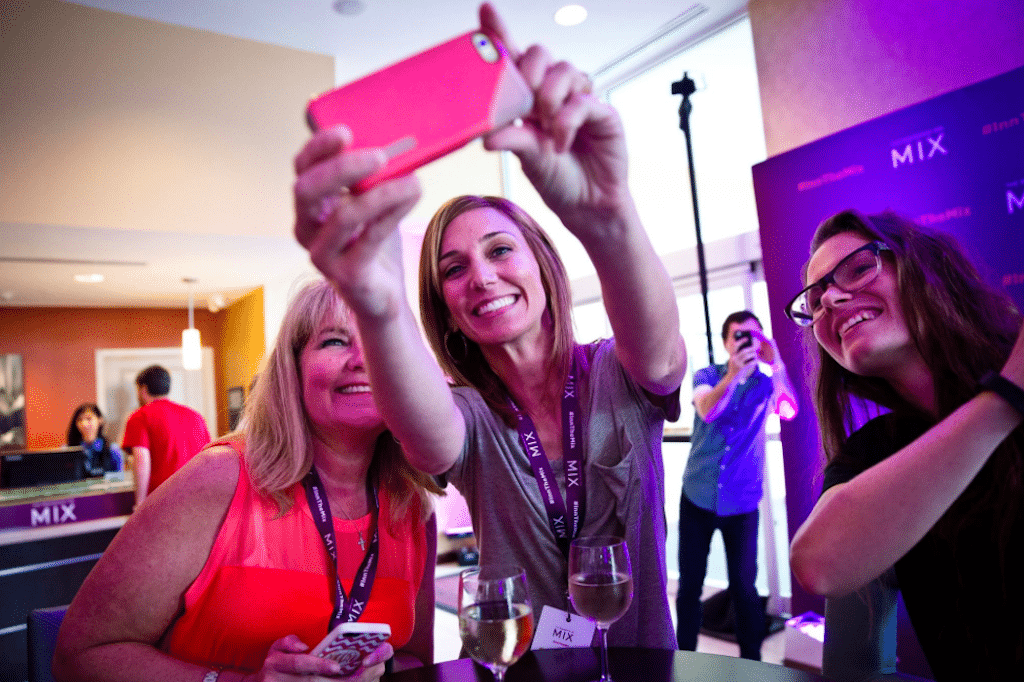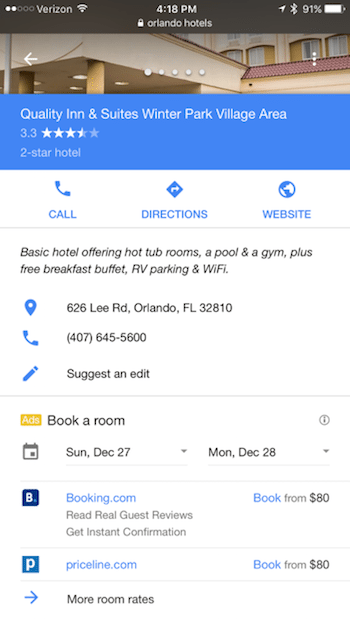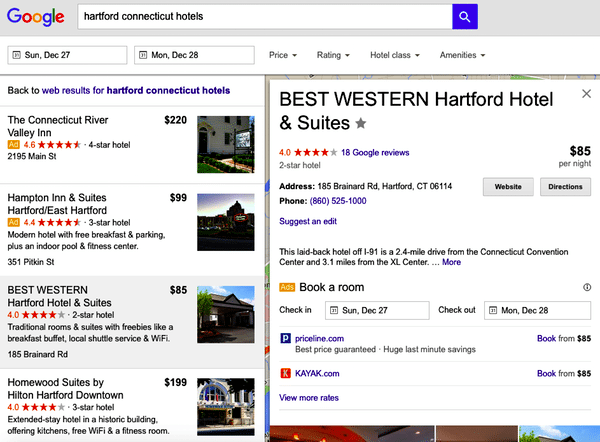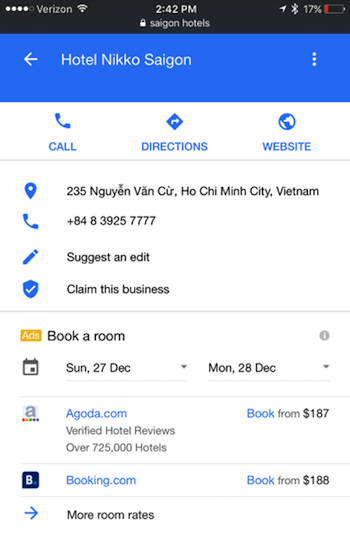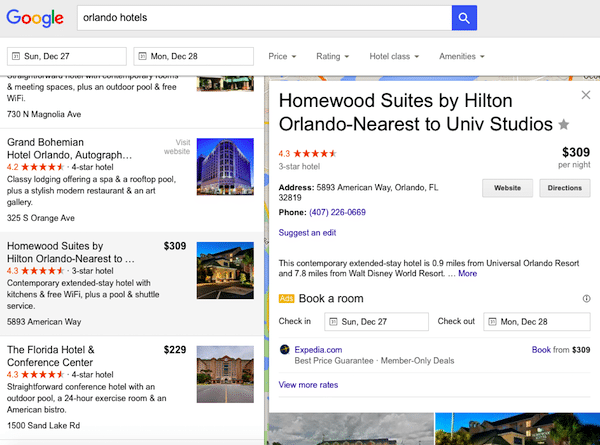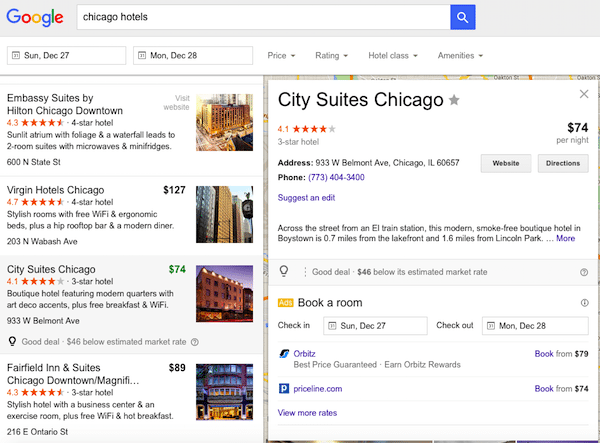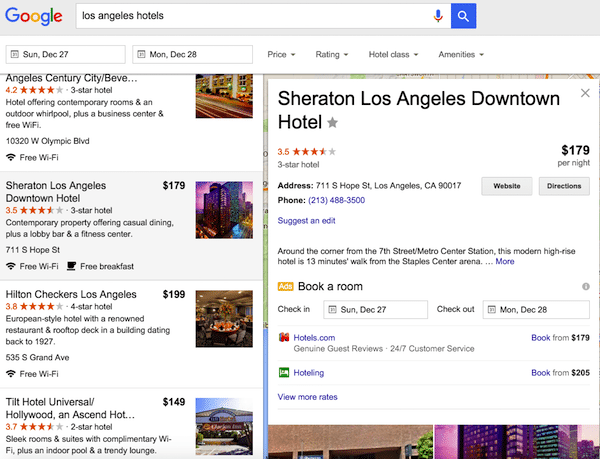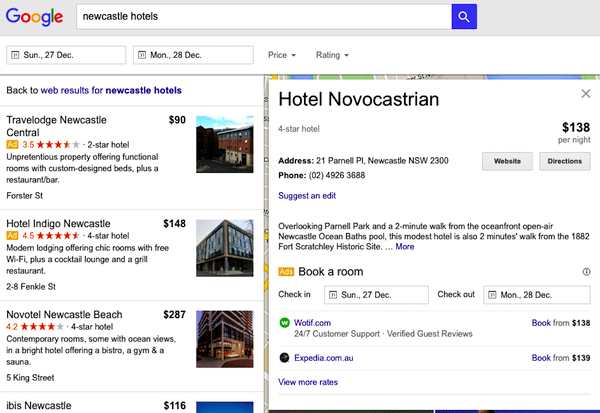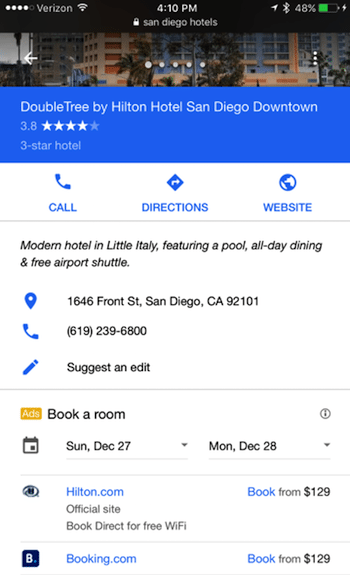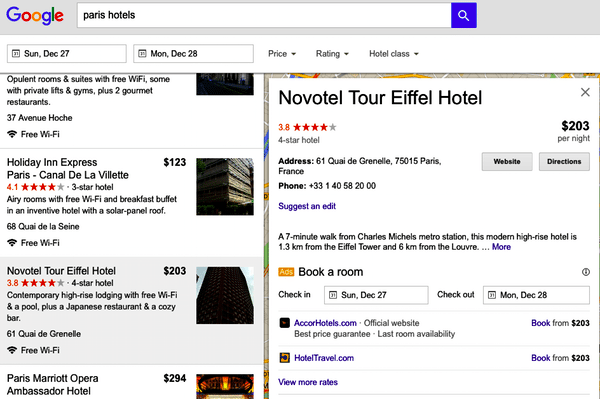Skift Take
For online travel agencies and hotel chains, the new cryptic brand messaging in Google Hotel Ads is a quest for identity and differentiation. Little things -- and a handful of characters -- will mean an awful lot. Want to know the difference between Booking.com and sister company Priceline.com? It's all there in the short bursts of brand blurbs.
The war for travelers’ hearts, minds and hotel bookings is taking place on Google through brand messaging, usually in short bursts of 25 to 50 characters.
If you’ve ever wondered how a travel brand, be it an online travel agency or hotel, really views itself or how sister brands, such as Expedia.com and Hotels.com, on the one hand, or Booking.com and Priceline.com, on the other, position themselves differently, then these mini-brand messages speak volumes.
Travel brands for years have been complaining that they don’t want to compete on price alone, particularly on travel-comparison sites such as Kayak or Trivago, in a race to the proverbial bottom.
Several such sites, including Kayak, now enable such brand messaging and in October, Google began a beta to enable online travel agencies and hotels to display blurbs below their company names and logos in Hotel Ads on mobile, desktop or both.
Skift took a look at the new brand messaging, which Google dubs “callouts,” in Google Hotel Ads for Booking.com, Priceline.com, Agoda.com, Expedia.com, Orbitz, Hotels.com, Wotif.com, Marriot.com, Hilton.com, and AccorHotels.com, and we discuss what these cryptic blurbs mean for the brands.
Booking.com
On mobile and desktop within Google Hotel Ads for some hotels, Booking.com touts itself like this: “Read Real Guest Reviews. Get Instant Confirmation.” On mobile it appears on two lines; on desktop Booking.com shows the message in Google on a single line.
Booking.com is all about “Instant Confirmation” as a point of differentiation and it rises to the level of being a principle across all of its lodging products, including hotels and especially vacation rentals. That’s because rivals such as HomeAway and TripAdvisor often require consumers to make an inquiry to request to book a vacation home with the wait for a confirmation sometimes taking 24 hours or more. If the owner decides to accept the guest or replies at all.
“Real Guest Reviews,” which only come from consumers who booked a stay on Booking.com, are also a point of pride to the folks at Booking.com as a way to distinguish itself from review leader TripAdvisor, which has no such requirement for “Real Guest Reviews.”
While TripAdvisor touts its 290 million reviews and opinions, many people don’t realize that Booking.com’s roster of reviews isn’t shabby — 70.5 million.
As with the other online travel agency and hotel brand messages Skift reviewed, Booking.com stayed with “Read Real Guest Reviews. Get Instant Confirmation” across various Google country sites, whether it was Google.com, Google UK, Google Australia or Google Mexico, and it was the same text on desktop and mobile.
So much for cultural differences concerning which callout would resonate for which nationals.
Priceline.com
Have you ever wondered what the difference is between sister sites Booking.com and Priceline.com besides the fact Booking.com only does lodging while Priceline.com offers the gamut of travel products and has a Trekkie as an actor/spokesman?
For Priceline.com in Google Hotel Ads, the messaging is all about price — and nothing relating to Booking.com’s emphasis about verified reviews and instant confirmation, although Priceline.com indeed offers both.
In Google Hotel Ads on desktop and mobile, Priceline.com highlights: “Best price guaranteed. Huge last minute savings.”
In other words, Priceline.com, which made its mark with the hotel, air and car-rental bidding feature, Name Your Own Price, is the Priceline Group’s discount brand even though it has broadened its offerings with published and same-day rates, and moved away somewhat from Name Your Own Price.
Agoda.com
Like Booking.com, sister site Agoda.com, the Singapore-headquartered hotel-booking site in the Priceline Group portfolio, emphasizes the legitimacy of its user-written hotel reviews although it refers to “Verified Hotel Reviews” in contrast to Booking.com’s admonition to “Read Real Guest Reviews.”
Somehow, Booking.com’s “Read Real Guest Reviews” seems like more of a call to action than Agoda’s more laid-back “Verified Hotel Reviews.” And perhaps the alliterative “Read Real” part of Booking.com’s callout really resonates.
Meanwhile, in Google Singapore on mobile, Agoda’s callout for the Hotel Nikko Saigon is: “Verified Hotel Reviews. Over 725,000 Hotels.”
So not only does the callout emphasize Agoda’s “Verified Hotel Reviews” but also its comprehensive in offering “Over 725,000 Hotels.”
If Booking.com had chosen to call out its own comprehensiveness, the figure could have been “Over 830,000 Hotels” but Booking.com chose instead to headline “Instant Confirmation.” (Unless it is testing alternate callouts which we didn’t find.)
It should be noted that in our casual search of brand callouts in Google Hotel Ads, among the Priceline Group companies Booking.com offered its marketing callout much more often than sister brands Agoda and Priceline.com did. As with just about everything within the Priceline Group empire, Booking.com is the top dog, the most-favored nation.
In other words, Booking.com is the big earner and gets the most marketing resources in the Group.
Expedia.com
Expedia.com’s callout in Google Hotel Ads is closer in nature to Priceline.com’s than to chief rival Booking.com’s. Like Priceline.com, Expedia.com emphasizes price but also punctuates its loyalty program with: “Best Price Guarantee. Member-Only Deals.”
Orbitz
Orbitz, which was acquired by Expedia Inc. in September, riffs off the Expedia.com brand, making for a fairly unified, albeit customized, theme. The Orbitz callout is: “Best Price Guaranteed. Earn Orbitz Rewards.” Expedia’s message is marginally more deal-heavy than the Orbitz callout as Expedia proclaims: “Best Price Guarantee. Member-Only Deals.”
On a side note, in September 2014, a year before Expedia acquired Orbitz, Expedia Inc. CEO Dara Khosrowshahi seemed to deride Orbitz Rewards, telling Skift: “When we look at the Orbitz program, I wouldn’t call it as much a loyalty program because a loyalty program rewards you for being loyal. I think we see the Orbitz program as being more of a cross-sell program. If you buy an air ticket then you have some Orbucks to spend immediately. So it doesn’t necessarily reward loyalty; it rewards cross-sell.”
Hotels.com and Wotif.com
Two other Expedia Inc. brands, namely Hotels.com and Wotif.com, headquartered in the U.S. and Australia, respectively, emphasize guest-written hotel reviews in their branding callouts but leverage the customer support angle, too.
For the Sheraton Los Angeles Downtown Hotel on Google.com, Hotels.com touts: “Genuine Guest Reviews. 24/7 Customer Service.”
In contrast to sister brand Hotels.com, Australia’s Wotif leads with the customer-support angle rather than making it secondary to reviews. Wotif’s brand callout on Google Australia on desktop for the Hotel Novocastrian in Newcastle, Australia is: “24/7 Customer Support. Verified Guest Reviews.”
Marriott.com, Hilton.com and AccorHotels.com
Among brand callouts that we found for three big hotel chains, Marriott.com was the only one to emphasize mobile services per se.
Marriott.com’s brand callout on Google.com desktop for the Marriott Marquis San Diego Marina hotel was: “Best Rate Guaranteed. Mobile Check-In.”
Interestingly for that same hotel on mobile for the same dates, Booking.com had the brand-callout rights: “Read Real Guest Reviews. Get Instant Confirmation,” it said. Both Marriott.com and Booking.com were touting a room rate of $219 per night so Marriott could live up to its pledge of “Best Rate Guaranteed.”
In addition to Marriott.com’s meat for price-conscious guests, “Best Rate Guaranteed,” Marriott.com marketers decided to emphasize on Google.com desktop in Hotel Ads Marriott’s push for mobile check-ins. Marriott app users can check in and check out using the app, and therefore avoid delays at the front desk.
On Marriott.com, and in contrast to the brand’s callout in Google Hotel Ads, the site emphasizes “Free Wi-Fi” ahead of “Mobile check-in” at the bottom of the fold on the homepage but doesn’t mention free Wi-Fi in its Google Hotel Ads callouts.
Hilton.com in its brand callouts in Google Hotel Ads on mobile goes with “free Wifi” as the dominant message over the digital check-ins that it also offers. Hilton.com’s callout is: “Official Site. Book Direct for free Wifi.”
The callout to the fact that Hilton.com is the “Official Site” is no casual thing as the U.S. hotel industry trade group, the American Hotel & Lodging Association, has been railing all year about rogue and affiliate sites that sometimes masquerade as the hotel brand’s site. Oftentimes consumers think they are booking directly with the hotel but end up making their reservation with a site that has little or nothing to do with the hotel brand.
Like Marriott, Hilton Worldwide has been aggressive this year in imploring consumers to “Book Direct” for perks such as free Wi-Fi so the brand messaging in Google Hotel Ads hits Hilton.com’s sweet spot.
AccorHotels.com’s brand messaging might be second-guessed for its tendency to dip into jargon. In Google Canada on desktop, AccorHotels.com’s callout in Google Hotel Ads for the Novotel Tour Eiffel Hotel in Paris is: “Best price guarantee. Last room availability.”
Do average consumers really have “Last room availability,” in that sort of language, on their minds? AccorHotels.com thinks so.
A Few More Things About Callouts
The callouts in Google Hotel Ads is in beta so there isn’t an over-abundance of public information about them.
What is known is that Google doesn’t charge companies to include these brand messages and they have to be factual. There are obvious restrictions on the length of the text.
The callouts — and whether they appear — are based on a consumer’s language settings so if a partner does not submit a callout in French, for example, then they won’t be displayed for French users.
Nicholas Ward, co-founder and president of digital-marketing platform Koddi, says since the callouts in Hotel Ads are in beta “many of the advanced rotation features we’d expect aren’t available yet.”
In Hotel Ads, there is only one brand callout per ad in the initial view even though a couple of competitors may show their pricing in the ads. Online travel agencies and hotels can apparently tweak the appearance of their callouts by campaigns and geographies, for example.
Google AdWords has used callouts for an extended period and they are widely used there in retail as well as a bevy of other industries beyond travel.
Although the callouts in Google Hotel Ads apparently differ in some respects from callouts in Google AdWords, the following Google support video provides a basic overview.
The Daily Newsletter
Our daily coverage of the global travel industry. Written by editors and analysts from across Skift’s brands.
Have a confidential tip for Skift? Get in touch
Tags: google, hotels, marketing, mobile, otas
Photo credit: Marriott.com wants to be known as a value-oriented and mobile-savvy brand. In Google Hotel Ads, Marriott.com markets itself the blurb, 'Best Rate Guaranteed. Mobile Check-In.' Pictured are some Residence Inn guests, including one with a smartphone, enjoying The Mix social gathering. Marriott International
